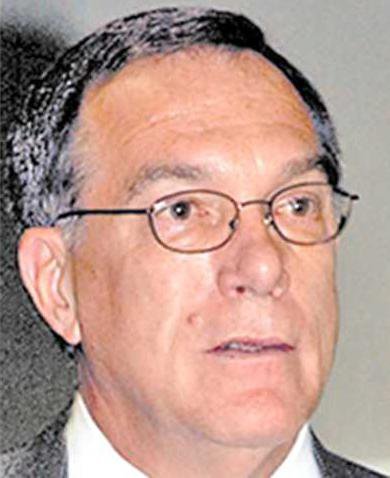After months of quiet on a heated issue, the Liberty County Development Authority confirmed that its Laurel View water reclamation facility is not moving forward at this time.
“It’s on indefinite hold until the economy improves and until the need is created in the service delivery area,” LCDA Chairman Allen Brown said.
Considered as early as 2006, the plant located inside the Tradeport East Business Park was slated to service the county’s coastal industrial areas, as well as a boom of residential and commercial developments, Brown said.
“They were expecting extreme growth in Midway,” Brown said, adding that several private landowners approached the authority with plans to develop subdivisions and commercial facilities.
To date, the project has put an estimated $10 million into construction and engineering for the plant, which currently has piping installed in the ground and an estimated 2,000-square-foot completed building that is unoccupied.
But local developments stalled as the international economic downturn unfolded, limiting the need for the facility.
In the past few years, many people have spoken against the project, citing concerns about its environmental impacts on the marshlands of Liberty and Bryan counties.
The project’s opponents, many of whom were Bryan County residents, questioned a Georgia Environmental Protection Division study that concluded the facility’s discharge would have little effect on the levels of ammonia and dissolved oxygen in the river.
“We’re definitely pleased that it’s on indefinite hold,” Ogeechee Riverkeeper Dianna Wedincamp said. “We, along with many residents, were opposed to the project from the beginning because we didn’t see the need for it.”
The group, currently fighting against industrial pollutants in the Ogeechee, will keep an eye on future moves related to the project, she added.
“We do want these coastal communities to make sure they’re considering all the options before they build new facilities,” Wedincamp said.
Allen Davis, president of the Coastal Estuary Protection Association citizens group, said the project’s indefinite delay is in the best interest of the coast as well as its citizens.
“Generally, at such time as there is an interest in further development along our coast in Liberty County, I think the demand should call for a re-evaluation of wastewater treatment options — but it should be demand driven, clearly,” he said.
But Carmen Cole, LCDA director of finance and administration, and Brown both believe some of the opposition was rooted in people not fully understanding how the facility was to function, they said.
Many referred to the plant as a wastewater treatment facility, when its true function was to reclaim the water, Cole said.
Reclamation facilities treat the water so it can be reused in a beneficial manner, whereas wastewater plants do not treat water to the same degree and therefore it cannot be reused in the same way, according to a previous email from CH2M Hill project manager Wayne Murphy.
The facility would have allowed the water to be used for irrigation across the service areas and for non-potable uses upon request by the industrial facilities within Tradeport East — ultimately reducing the reliance on groundwater, Murphy wrote.
“The goal was to put no water, nothing, into the river — except in emergency situations,” Brown said.
Murphy explained that the water would be stored in a 1.5-million-gallon reuse tank, but that some water would need to be disposed of during the wet season when the water exceeded the tank’s capacity.
After the complaints were lodged, the EPD agreed to do an independent study and take into account the results, along with previous information and stakeholder input, when making its final determination about granting a National Pollutant Discharge Elimination System permit.
While Murphy previously said that the final permit was anticipated in February 2011, the LCDA has yet to receive the permit, according to Cole.
“We’ve not had any indication from them that they’re not going to give it to us. The only (change) was that they might change a few limits,” Cole said.
But given the area’s economic state, the permit issue is now essentially a moot point.
“As long as Midway can withstand the capacity, we will continue to operate as is,” Brown said.
And any future move on the plan would require the group to go back to the drawing board and take new growth projections and economic situations into account.
“Even if we got the permit, we’re not in a position to move any further on the project until the economic world changes,” Brown said. “And even if that happened, we would look at what we’ve done so far, what we’ve planned to do, and then try to find out what we would plan to do under the new circumstances.”
Water reclamation plant on hold
LCDA: Treatment facility dependent on economic improvement


Sign up for our e-newsletters